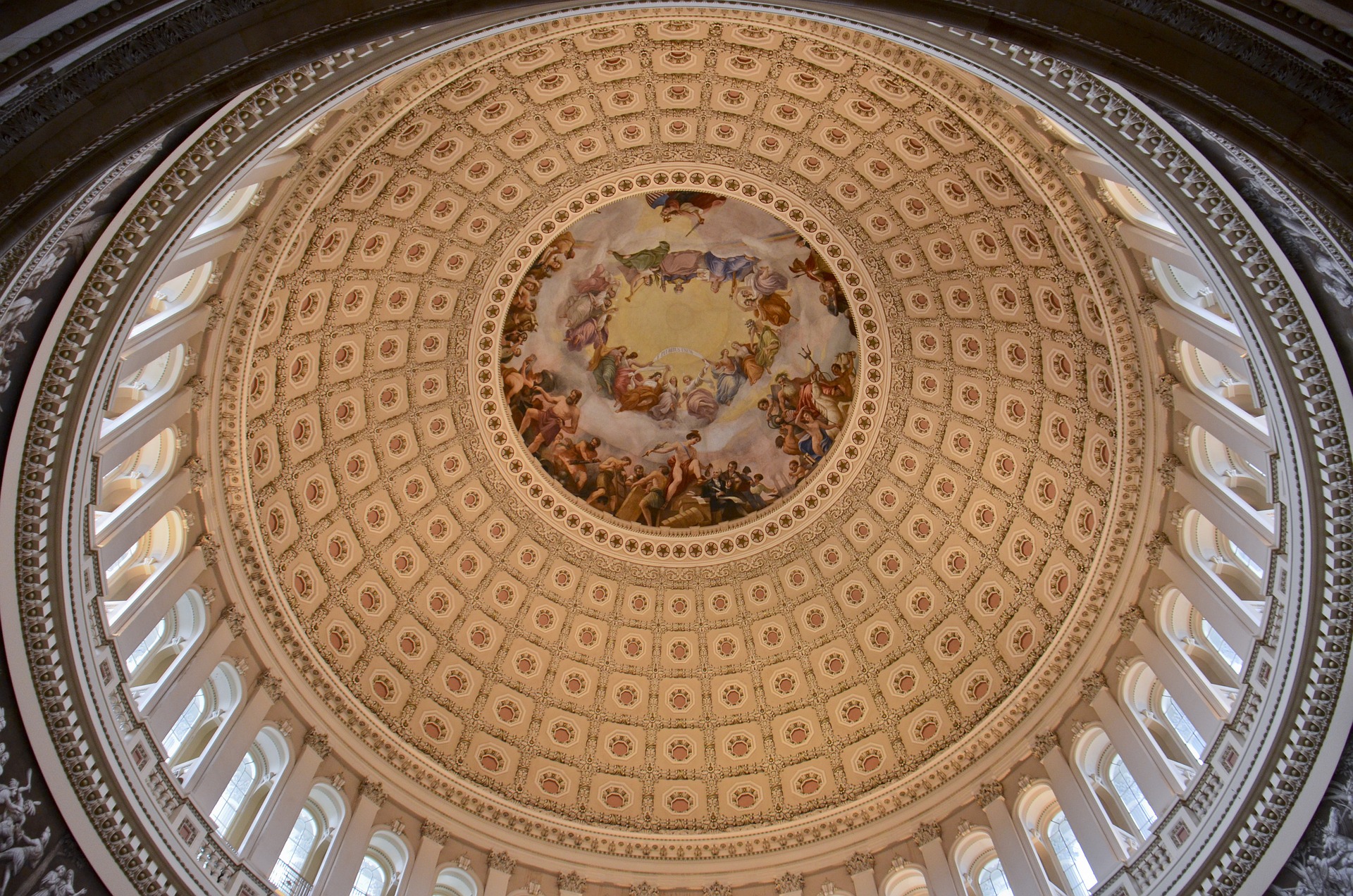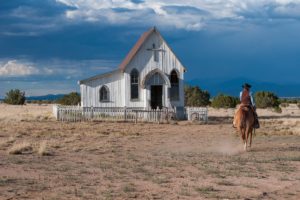The Founding Fathers & Deism
[There has been] an ongoing debate concerning the religious nature of the Founding Fathers. A recent letter [to the editor] claimed that most of the Founding Fathers were deists, and pointed to Washington, Jefferson, Franklin, Paine, Hamilton, and Madison as proof. After making this charge, the writer acknowledged the “voluminous writings” of the Founders, but it appears that she has not read those writings herself. However, this is no surprise since the U. S. Department of Education claims that only 5 percent of high schools graduates know how to examine primary source documentation.(source: re-printed with permission Copyright 2008 Wall Builders, www.wallbuilders.com, Jan 30, 2008)
Interestingly, the claims in this recent letter to the editor are characteristic of similar claims appearing in hundreds of letters to the editor across the nation. The standard assertion is that the Founders were deists. Deists? What is a deist? In dictionaries like Websters, Funk & Wagnalls, Century, and others, the terms “deist,” “agnostic,” and “atheist” appear as synonyms. Therefore, the range of a deist spans from those who believe there is no God, to those who believe in a distant, impersonal creator of the universe, to those who believe there is no way to know if God exists. Do the Founders fit any of these definitions?
None of the notable Founders fit this description. Thomas Paine, in his discourse on “The Study of God,” forcefully asserts that it is “the error of schools” to teach sciences without “reference to the Being who is author of them: for all the principles of science are of Divine origin.” He laments that “the evil that has resulted from the error of the schools in teaching [science without God] has been that of generating in the pupils a species of atheism.” Paine not only believed in God, he believed in a reality beyond the visible world.
In Benjamin Franklin’s 1749 plan of education for public schools in Pennsylvania, he insisted that schools teach “the necessity of a public religion… and the excellency of the Christian religion above all others, ancient or modern.” Consider also the fact that Franklin proposed a Biblical inscription for the Seal of the United States; that he chose a New Testament verse for the motto of the Philadelphia Hospital; that he was one of the chief voices behind the establishment of a paid chaplain in Congress; and that when in 1787 when Franklin helped found the college which bore his name, it was dedicated as “a nursery of religion and learning” built “on Christ, the Corner-Stone.” Franklin certainly doesn’t fit the definition of a deist.
Nor does George Washington. He was an open promoter of Christianity. For example, in his speech on May 12, 1779, he claimed that what children needed to learn “above all” was the “religion of Jesus Christ,” and that to learn this would make them “greater and happier than they already are”; on May 2, 1778, he charged his soldiers at Valley Forge that “To the distinguished character of patriot, it should be our highest glory to add the more distinguished character of Christian”; and when he resigned his commission as commander-in-chief of the military on June 8, 1783, he reminded the nation that “without a humble imitation” of “the Divine Author of our blessed religion” we “can never hope to be a happy nation.” Washington’s own adopted daughter declared of Washington that you might as well question his patriotism as to question his Christianity.
Alexander Hamilton was certainly no deist. For example, Hamilton began work with the Rev. James Bayard to form the Christian Constitutional Society to help spread over the world the two things which Hamilton said made America great: (1) Christianity, and (2) a Constitution formed under Christianity. Only Hamilton’s death two months later thwarted his plan of starting a missionary society to promote Christian government. And at the time he did face his death in his duel with Aaron Burr, Hamilton met and prayed with the Rev. Mason and Bishop Moore, wherein he reaffirmed to him his readiness to face God should he die, having declared to them “a lively faith in God’s mercy through Christ, with a thankful remembrance of the death of Christ.” At that time, he also partook of Holy Communion with Bishop Moore.
The reader, as do many others, claimed that Jefferson omitted all miraculous events of Jesus from his “Bible.” Rarely do those who make this claim let Jefferson speak for himself. Jefferson’s own words explain that his intent for that book was not for it to be a “Bible,” but rather for it to be a primer for the Indians on the teachings of Christ (which is why Jefferson titled that work, “The Life and Morals of Jesus of Nazareth”). What Jefferson did was to take the “red letter” portions of the New Testament and publish these teachings in order to introduce the Indians to Christian morality. And as President of the United States, Jefferson signed a treaty with the Kaskaskia tribe wherein he provided—at the government’s expense—Christian missionaries to the Indians. In fact, Jefferson himself declared, “I am a real Christian, that is to say, a disciple of the doctrines of Jesus.” While many might question this claim, the fact remains that Jefferson called himself a Christian, not a deist.
James Madison trained for ministry with the Rev. Dr. John Witherspoon, and Madison’s writings are replete with declarations of his faith in God and in Christ. In fact, for proof of this, one only need read his letter to Attorney General Bradford wherein Madison laments that public officials are not bold enough about their Christian faith in public and that public officials should be “fervent advocates in the cause of Christ.” And while Madison did allude to a “wall of separation,” contemporary writers frequently refuse to allow Madison to provide his own definition of that “wall.” According to Madison, the purpose of that “wall” was only to prevent Congress from passing a national law to establish a national religion.
None of the Founders mentioned fit the definition of a deist. And as is typical with those who make this claim, they name only a handful of Founders and then generalize the rest. This in itself is a mistake, for there are over two hundred Founders (fifty-five at the Constitutional Convention, ninety who framed the First Amendment and the Bill of Rights, and fifty-six who signed the Declaration ) and any generalization of the Founders as deists is completely inaccurate.
The reason that such critics never mention any other Founders is evident. For example, consider what must be explained away if the following signers of the Constitution were to be mentioned: Charles Pinckney and John Langdon—founders of the American Bible Society; James McHenry—founder of the Baltimore Bible Society; Rufus King—helped found a Bible society for Anglicans; Abraham Baldwin—a chaplain in the Revolution and considered the youngest theologian in America; Roger Sherman, William Samuel Johnson, John Dickinson, and Jacob Broom—also theological writers; James Wilson and William Patterson—placed on the Supreme Court by President George Washington, they had prayer over juries in the U. S. Supreme Court room; and the list could go on. And this does not even include the huge number of thoroughly evangelical Christians who signed the Declaration or who helped frame the Bill of Rights.
Any portrayal of any handful of Founders as deists is inaccurate. (If this group had really wanted some irreligious Founders, they should have chosen Henry Dearborne, Charles Lee, or Ethan Allen). Perhaps critics should spend more time reading the writings of the Founders to discover their religious beliefs for themselves rather than making such sweeping accusations which are so easily disproven.
For other examples of letters to the editor and information on how you can get informed please click here





